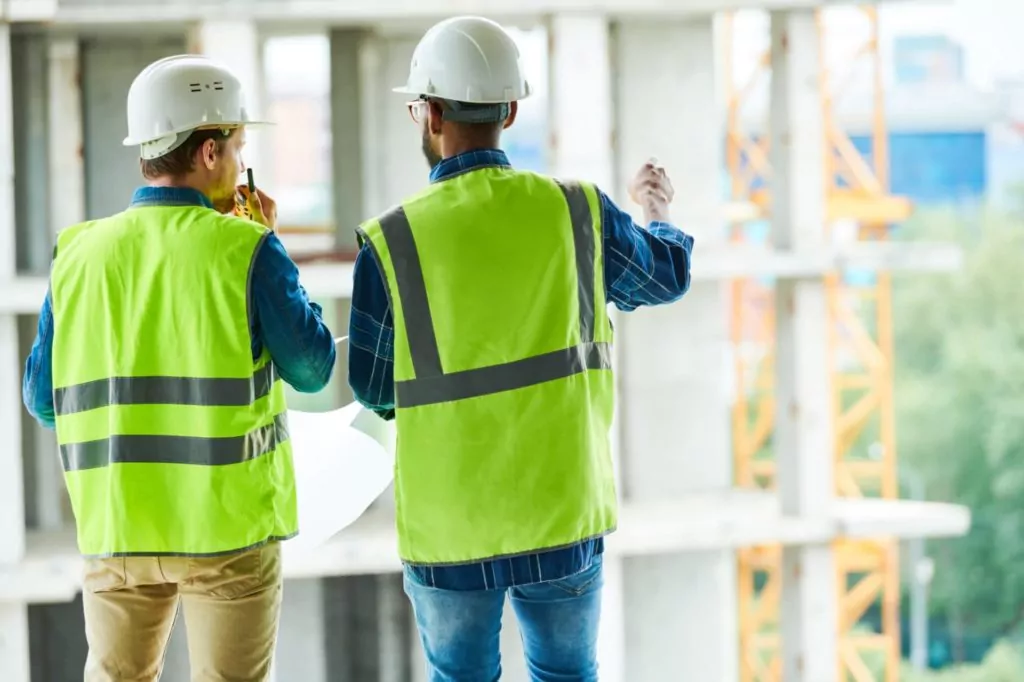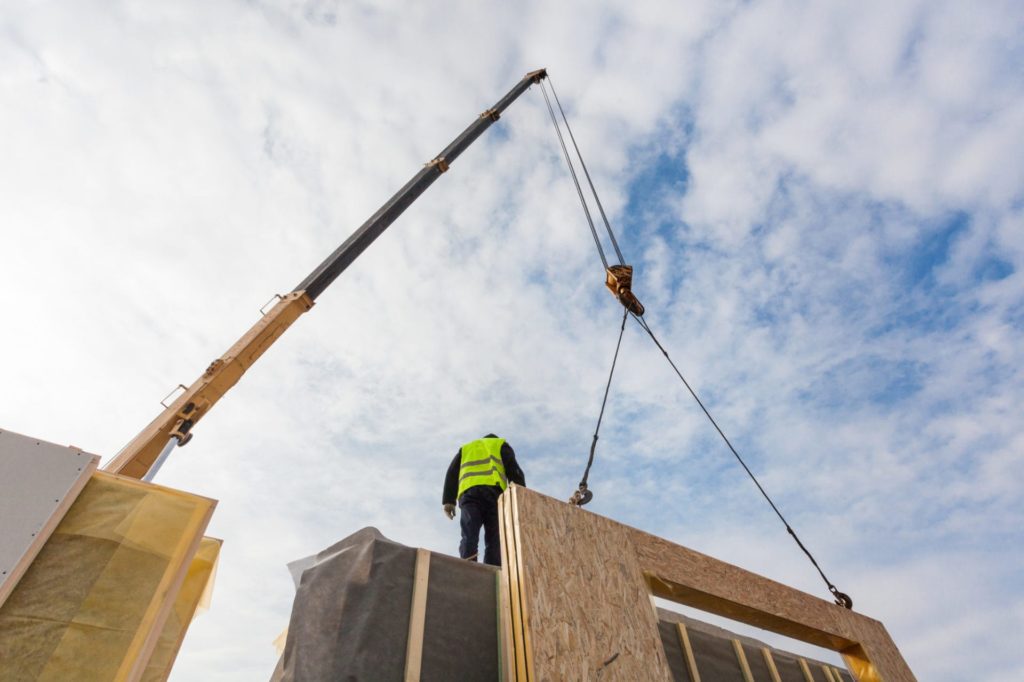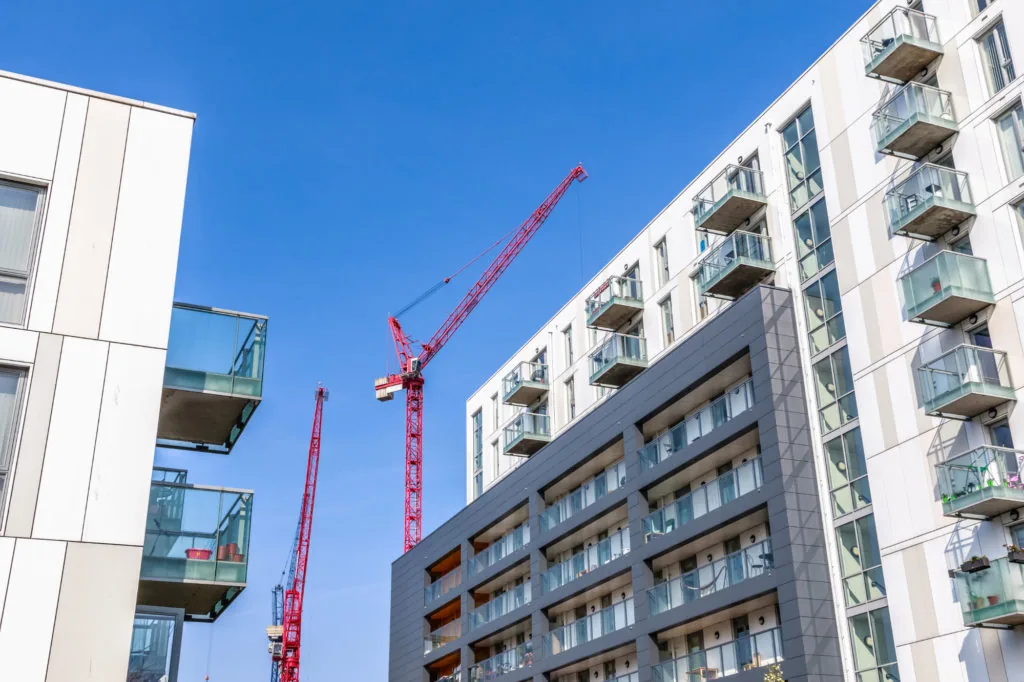
Modular construction is a paradigm shift in home building. In conventional construction individual components are gradually assembled on the construction site: bricks, roof tiles, electrical cables, window frames, concrete foundation blocks - you name it - and these are then painstakingly assembled in sequence into a building.
In modular construction, by contrast, the focus shifts radically from the building site and individual materials to off-site factories, where room-sized sections of the new building are manufactured. These modules are then transported to the construction site and assembled to create the new property.
Modular homes are also known as ‘prefabs’ or ‘system-built’ buildings. They are distinct from mobile homes in having permanent foundations and they are valued in exactly the same way as conventional property. By contrast, mobile homes typically depreciate over time.
Mortgage rates, loans, and insurance costs for modular homes are all directly comparable to those for conventional buildings.
The modular construction process
Modular construction is usually much faster than the conventional building process. Because the component sections are completed indoors in climate-controlled environments, bad weather cannot disrupt the build - a routine occurrence on conventional building sites.
Health and safety and quality inspections take place in the factory before transport to the assembly site, so there may be no need for a separate home inspection on site for certain aspects of the build. Offsite construction also makes quality control much easier, while mass production lowers the cost of labour.
Once the prefabricated sections arrive on site, typically via flatbed truck, they are rapidly assembled using cranes. Meanwhile, factory operations on the next sections can continue. This simultaneous approach minimises delay and ensures that little time is wasted. From start to finish, the building of modular home projects can be completed in weeks rather than the months typically required for conventional construction. In 2015, Chinese construction company Broad Sustainable Building threw up a modular 57-storey skyscraper called Mini Sky City in just 19 days - that’s three floors a day!
This speed can translate into significant savings, and this makes modular construction an obvious choice for local authorities and developers seeking to create affordable housing stock.
It is important to note that the price of the electrical and plumbing systems may not always be included in the initial project quote, and basements may also be classed as an optional extra, so be sure to investigate these possibilities and factor in any additional costs as necessary.
In addition, it is obviously necessary for anyone purchasing a modular home to own the land on which it will be constructed and that could be a major additional expense.
Modular homes are built as an integrated whole from the ground up, using only the latest materials and technology. This ensures they are highly energy efficient, and that will translate into long term savings for the occupants. This, combined with their often minimalist design, means that modular homes are also more environmentally friendly than conventional buildings.
But minimalism certainly does not translate into boring uniformity. Fully pre-designed, ‘off the shelf’ modular homes are certainly available, but it is also quite possible to heavily customise your factory-built property: multiple designs, configurations and types of modular home are available.
Some architects specialise in modular design, and most on-demand construction companies offer computer-aided design facilities in order to cater to customers keen to put their own spin on the finished product. Customisation options range from the entire building style down to fine details like kitchen countertops, cabinet styles and window frames.
Modular homes are comfortably ‘future-proof’: they can easily be extended and expanded and comfortably incorporate new technologies like home automation. They are also adaptable to different lifestyles and circumstances - for example a family home could be modified for use by an elderly couple later on.
Modern modular construction technology is robust: organisations such as the Federal Emergency Management Agency (FEMA) in the United States have noted its ability to withstand hurricane force winds.
Modular construction laws & legislation
A variety of building regulations and codes apply to modular homes. These define standards for the construction of new properties, as well as alterations to existing ones. They vary in detail from region to region, but the overall aim will be to ensure that the building is safe to live in and properly constructed.
Insurers such as NHBC or Premier Guarantee also have processes through which they pre-approve products / processes in respect of modular construction – these further improve the safety aspects of the property.
Risks of modular construction
Modular construction involves the speedy assembly of large prefabricated modules on site, so it is vital that these are carefully designed and checked before leaving the factory to ensure they will fit together reliably once on site. Any faults could mean expensive delays if detected - and structural failures if not detected. In addition, further changes to the design of the modules will not be possible after a certain point as factory production of the designed units will need to commence, so parties will need to be aware of the particular "design freeze" in each project.
Perhaps the two riskiest elements from a practical point of view in relation to modular construction are the use of cranes to assemble the modules and transportation of large modules by truck from the factory to the construction site. It is vital for contractors to ensure all their staff are properly trained and all equipment is regularly inspected. Comprehensive insurance cover is also essential.
But benefits accompany the risks. Conventional on site, open air builds present considerable logistical challenges to construction companies - the supply of multiple materials and components must be carefully coordinated within a limited time frame to meet deadlines and limit exposure to bad weather. Many of these risks are mitigated by indoor construction in a controlled environment.
Our services in modular construction
Our specialist, multi-disciplinary team work closely with many companies involved in modular construction, including developers, funders, housing associations and other public sector organisations.
We provide a comprehensive range of business services to the construction industry, including
- Expert advice on all aspects of property,
planning and construction law, including health and safety and zero carbon
building practice. - Fully tailored construction and
commercial contracts for modular construction projects. These incorporate each
client’s specific priorities, risk profiles, funding relationships and
insurance structures. - Helping to resolve disputes over payment,
delivery terms and similar practical matters via risk mitigation advice or advice
on tactics, adjudication or litigation. - Expert advice on risk management and
trends across the industry. - Advice on net zero carbon construction,
localised energy generation, mobility and use of charge points in modular
construction. - Advice on data practices, including digital
data collection to improve your operational efficiency and achieve better
funding, insurance terms and compliance with data protection law.
Planning a modular build? Find out more about our construction lawyers, our new build conveyancing solicitors or Speak to an expert today.









